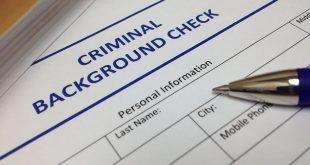 With the demand for, and cost of, housing seemingly always on the rise, investing in property is a tempting prospect. It’s not a guaranteed money spinner, however, so look before you leap and avoid falling into the many traps awaiting the novice investor.
With the demand for, and cost of, housing seemingly always on the rise, investing in property is a tempting prospect. It’s not a guaranteed money spinner, however, so look before you leap and avoid falling into the many traps awaiting the novice investor.
1 – Poor planning
Remember the old army saying about the preventative effect on poor performance of proper planning and preparation. Don’t rush in for the sake of short term profits, but have a clear investment strategy for your future.
2 – The price is wrong
Impatience or inexperience can cause many buyers to pay too much, when waiting, looking around, or negotiating could have brought them a better deal. Decide in advance exactly what you want and how much you are prepared to pay for it.
3 – Location situation
A bargain isn’t a bargain if it’s in the wrong place. A rental property in an area with low demand for rented homes is little more than a liability. If property prices are high and rents are low, it will be a long time before you see a return on your investment.
4 – Changing landscape
It’s also a good idea to investigate an area’s future. A district enjoying a surge in popularity may not stay hot forever. A cheaper part of town might be the next big thing, but it might not. New developments like a shopping mall or an improved transport link can have a positive effect, creating jobs and making an area more desirable, or they might increase noise and nuisance, devaluing properties.
5 – Permission denied
Don’t assume you will be able to get planning permission for any improvements, extensions or modifications to premises, for example, converting a house to separate flats. Find out before you’re stuck preserving a property exactly as it is.
6 – Fixer upper
When buying property, expect problems. No matter how careful your surveyor, they can still miss things, so, before you commit, work out how much time and money it will take to renovate your purchase to the desired level, and make sure you have a buffer in case, as so often happens, it takes longer and costs more.
7 – No exit
Have more than one exit strategy, in case your original plans fall through. If a house doesn’t sell as planned, consider renting it out, and vice versa. Other possibilities for empty properties include long term renovation projects, or selling the land to a developer.
8 – Heart over head
Avoid getting emotionally involved with what should be a business venture, or you may find yourself paying over the odds for a property, choosing something you like the look of rather than a less appealing but more sensible investment, or hanging on to a property too long for sentimental reasons.
9 – Strong foundations
Do you have the necessary financial reserves to safeguard your investment? Without financial security you may end up sinking your own money into your business, or be forced to sell up early, for less than you hoped to make.
10 – Flying solo
Most, if not all, of these mistakes can be avoided by consulting an expert before investing. Paying for a consultation might well be the best investment of all.
Author Bio
Simon Barnett works with manvanlondon.co.uk and has built up considerable knowledge of relocations and property investing as a result. He has studied the differing approaches of a number of leading investors, with the specific aim of identifying successful strategies.
